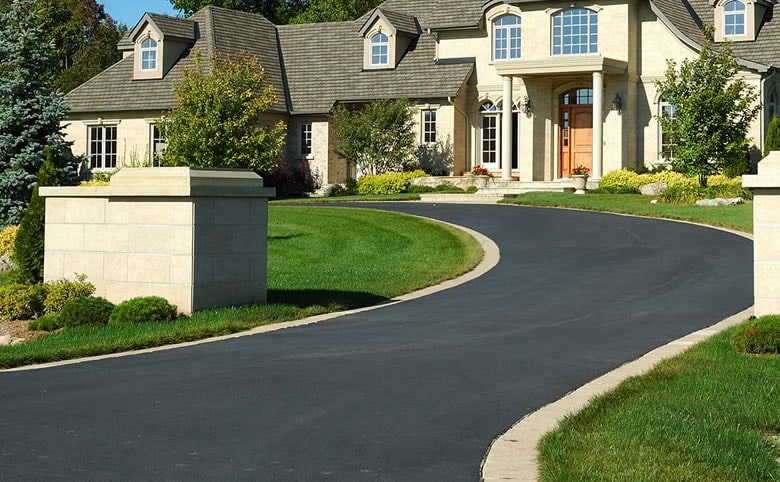The driveway is one of the first things visitors notice when they arrive at your house, so keep it in good shape to make a nice first impression. Asphalt is the most common choice for paving roads and driveways because of its strength and durability. However, they are prone to deterioration for a variety of causes. Asphalt may also get exceedingly hot, especially in the summer or in a hotter region. But, like everything else, with appropriate care and upkeep, your asphalt driveway will survive for many years.
You've just made a significant investment in your property by installing a new asphalt driveway. A little maintenance will go a long way toward ensuring that your blacktop remains structurally strong and appealing to the eye. Here's how to keep your asphalt driveway in good shape for the rest of its life.
- Visual inspectionVisual inspections are the first step in proper asphalt maintenance. Your asphalt driveway should be inspected visually as part of your monthly exterior maintenance. Checking your driveway throughout the year, especially during the winter and summer, can ensure that minor flaws and repairs are addressed before they become vulnerable to additional harm. Minor damage that goes unnoticed can quickly escalate into a major expensive burden, so examine your driveway every season.
- Repair driveway cracksAsphalt driveway cracks are not only ugly, but they may also be dangerous. Cracks can severely damage the structural integrity of your driveway, leading to additional degradation and the possibility of accidents or injuries, depending on their severity.Cracks should ideally be addressed when they are still hairline fractures, as they can be readily repaired with a sealer. Damaged places along your asphalt driveway should be noted during your visual inspections. Significant fissures that are broader will require a more focused effort. Large gaps, such as holes or depressions, must be cleaned before being filled and sealed.
- SealcoatingSealcoating your driveway is a crucial part of maintaining it. Moreover, as driveways in seasonal regions are prone to rain, snow, freeze-thaw cycles and blazing heat, a seal coating can help to slow down the degradation process. As a result, your asphalt will last as long as possible.The amount of time you need to seal coat your driveway depends on where you live and the temperature it must withstand. Sealcoating should be done at least every few years, ideally every two to five years. However, if your driveway is subjected to considerable wear and tear, such as heavy traffic or harsh weather, you may need to seal coat it more often.
- Preventative maintenanceSeasonal changes can cause your asphalt to deteriorate. Understanding how temperature and environment affect your asphalt can direct your preventative maintenance strategy to protect your investment, whether it's during the summer or the dead of winter.Regular cleaning should be the first step in your preventative maintenance strategy. Clean away surface debris (leaves, stones, dust, rubbish, etc.) that might stain or harm your asphalt once a month. This is also a good time to visually inspect the asphalt's integrity.Be proactive in removing oil and other difficult stains. Because asphalt is a permeable surface, accumulating stains can cause your custom asphalt to deteriorate quickly if not cleaned immediately.Avoid using salt or other chemical-based de-icing products as much as possible, since their extremely corrosive nature might cause additional harm to your asphalt. Consider potassium chloride instead of rock salt as a safe de-icing treatment for your asphalt.
- Remove standing waterIf left unchecked, standing water can swiftly turn into cracks and potholes, causing even more financial harm. The health of your driveway depends on proper drainage. Have a good drainage strategy in place as part of the installation procedure to prevent standing water from wreaking havoc.Grading the driveway away from the house prevents low spots and water from pooling at the driveway's margins. By keeping the base of your driveway from shifting or sinking, good sub-drainage will extend the life of your asphalt.







Follow us